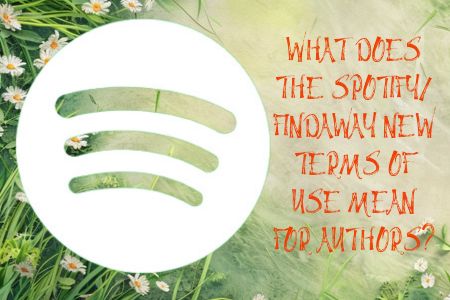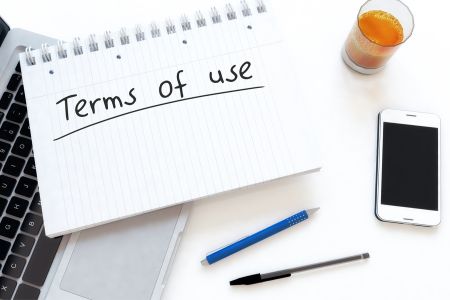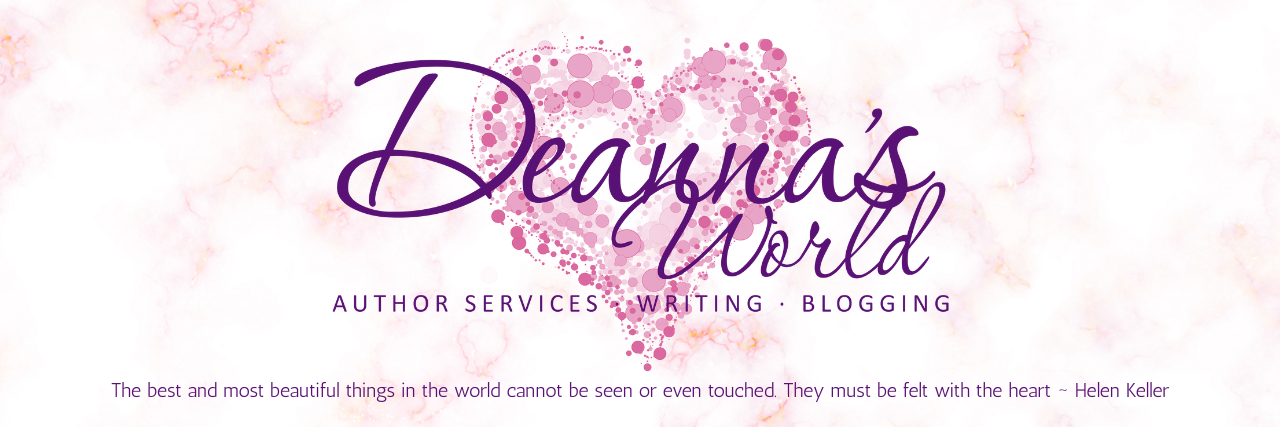
Hey everyone! I haven't
written in a while, but I saw this news about Findaway Voices's new
terms of use making the rounds on social media with regards to
Spotify and wanted to throw in my two cents to hopefully clarify some
things or at least present my (non-legal) understanding of it.
Note, the "new"
Spotify terms of use actually went into effect on 8
November, 2023, but the Findaway terms might only just be
starting to update.
To make things easier, here's the TL;DR version if you don't want to read the whole thing:
Spotify updated their terms on November
8th. I know the instinct may be to panic, but take a deep breath. As
a precaution, make sure you have backups of your audiobook files
outside Spotify. Options:
-
Request original files from your narrator
-
See if Findaway lets you download the files
-
Save to cloud storage like Google Drive
-
Local backups on an external hard drive
Retaining
access to your files puts power back in your hands as the creator.
Now, onto the key points about Spotify's new terms:
You
still own the copyright to content you post, but grant Spotify a
license to use it to operate their service. This includes
displaying, modifying, promoting your content. But the license is
limited - tied to providing Spotify, not anything they
want.
For
example, Spotify could translate your English audiobook to German to
reach more listeners. But you'd remain the copyright owner, and the
German version would only be on Spotify.
Ultimately,
diversify where you publish. You have the power to adapt and make
the best choices for sharing your work. All the best with whatever you decide. xoxo
Before I start and dive into the new terms, I'd like to say, I know the instinct may be to react and immediately pull your audiobooks off Spotify/Findaway Voices. But take a deep breath - this doesn't have to be done in haste.
However, as a
wise precaution, I would suggest looking into ensuring you have all your
audiobook files safely backed up and accessible outside of Spotify. Here
are some options to consider:
-
Request the original files from your narrator if you don't already have them saved. Most will keep the raw recordings for a period of time.
-
See if Findaway provides an option to download the final audiobook files they produced for distribution. Many aggregation services allow authors to access the files.
-
Save the files to a secure cloud storage like Google Drive or Dropbox so you have a remote copy. Local backups on an external hard drive are also smart in case of internet outages.
Having ready
access to your audiobook files and backups of them puts power back in
your hands as the creator. While third-party platforms make distribution
convenient, it's wise to retain control of your intellectual property.
Okay, on to the
meat of this post...

As many of you know,
Spotify recently changed their terms of service, specifically how it
affects audiobooks. I'm only going to focus on this one particular section
and how it impacts anyone who distributes their audiobooks to Spotify,
either directly or through a service like Findaway.
Here's what Spotify's new terms say:
Licenses that you
grant us
User
Content
You retain ownership of your User Content when
you post it to the Service. However, in order for us to make your User
Content available on the Spotify Service and to provide you with certain
features and functions, we do need a limited license from you to that
User Content. Accordingly, you hereby grant to Spotify a non-exclusive,
transferable, sub-licensable, royalty-free, fully paid, irrevocable,
worldwide license to reproduce, make available, perform and display,
translate, modify, create derivative works from, distribute, and
otherwise use any such User Content through any medium, whether alone or
in combination with other Content or materials, in any manner and by any
means, method or technology, whether now known or hereafter created.
Where applicable and to the extent permitted under applicable law, you
also agree to waive, and not to enforce, any "moral rights" or
equivalent rights, such as your right to be identified as the author of
any User Content, including Feedback, and your right to object to
derogatory treatment of such User Content. This clause does not
otherwise modify Spotify's obligation to use your User Content in
accordance with the licence above.
Before
I continue, here's my small disclaimer. THIS IS NOT LEGAL ADVICE.
Just so we're clear, I don't have any legal training - I'm not a
lawyer, nor have I studied law. The explanations I provide about the
Spotify terms are based on how I understand them as a regular
person, not a professional legal analysis. When it comes to
copyright laws and your actual rights, it's best to double check
with a lawyer who specializes in entertainment and IP. Legal
agreements can be complicated, and courts may interpret things
differently case by case depending on the specific situation. So
while I did my best to explain what I think the terms mean, you'll
want to get advice from a qualified legal expert before making any
decisions based on my non-lawyer interpretations. I can only provide
a layperson's understanding, not professional legal counsel. You
probably want to talk to someone with entertainment law or
intellectual property law expertise. Any mistakes in what I'm saying
below are mine alone and I apologize.

Now here's my non-legal
interpretation of that text, based on my non-legal
background understanding:
When you post content like photos,
comments, reviews etc. on Spotify (called "User Content"), you still own
that content.
However, in order for Spotify to operate
the service and provide it to users, they need certain licensing rights to
that User Content.
So you are granting Spotify a broad license
to use your User Content in connection with operating the Spotify service.
This includes things like:
-
Reproducing, displaying, and making the content available on Spotify
-
Allowing other users to see and interact with your content
-
Translating, modifying, or creating new works based on your content
-
Distributing and promoting your content through Spotify and other platforms
-
Operating and improving Spotify's business and systems
You're allowing Spotify to use your content
pretty much however they need to in order to run the service. This
includes things like translating it, modifying it, using it in
ads/promotions, etc.
You still own the copyright, but this
license gives Spotify broad rights to reuse and modify your User Content
as part of providing Spotify to users around the world.
To expand on this a little bit more:
-
You still own the copyright to your user-generated content (photos, comments, etc.) that you post on Spotify.
-
However, you are granting Spotify a non-exclusive license to your content. This means Spotify is allowed to use your content, but you can still license it to others as well.
-
The license gives Spotify broad rights to use your content in connection with operating the Spotify service. This includes things like displaying, sharing, modifying, translating your content.
-
But the license is limited in scope and purpose - it only allows Spotify to use your content for things related to providing the Spotify service.
-
Spotify does not get the right to use your content for anything they want. The use must be connected to running Spotify - things like displaying on the platform, promoting the service, improving features, etc.
The one thing I want to emphasize about your rights is that you
still own it, but are granting Spotify specific licensing rights to
use the content as needed for Spotify's business, not a complete
transfer of all rights or ability to use it however they like outside
of Spotify. Their usage is tied to operating the music streaming
service.
So what does this mean for you if you distribute your audiobooks on
Spotify either directly or via some service such as Findaway?
Here's an example:
Say you have an English language audiobook. Based
on the license terms explained, Spotify would have the right to
translate your audiobook from English to German in order to make it
available to listeners on Spotify in Germany.
Some points
about Spotify translating your audiobook:
-
The license expressly allows Spotify to "translate" user-generated content.
-
Translating it to German would allow them to distribute/promote it through the Spotify platform to attract German-speaking listeners.
-
They could modify or edit it as necessary to localize it for the German market/culture.
-
But any changes would still need to be based on and recognizeable as your original English audiobook content.
-
Spotify could not sell the German translation separately outside of their own service.
-
You would maintain the copyright over the original English version.
So translating it to German to expand the
potential audience on Spotify would fall within the scope of the broad
licensing rights you are granting under these terms. Spotify just can't
exploit the translated content outside of operating their own platform.
You would still
be considered the author/copyright holder of the German translated
version of the audiobook, even though Spotify performed the translation.
The license does not transfer ownership of the copyright to Spotify.
And based on the
terms, Spotify's rights are limited to using the content (including
translations/modifications) specifically in connection with operating
the Spotify platform/service. So the German translation would only be
made available through Spotify, and not distributed to other platforms
without your additional permission.
To summarize:
-
You remain the author/copyright owner of any translations.
-
Spotify's license only gives them rights to use/exploit the content through their own service, not other platforms.
-
The German version would only be distributed via Spotify, not separately licensed to other companies without your approval.
-
You still fully own the copyright in both the original and translated versions. Spotify just has a non-exclusive license to utilize the content as needed for Spotify.

It's up to you to
decide how you want to respond, but it's important to note this change
only affects what happens within Spotify's platform itself. It
doesn't impact anything else you do with your audiobook elsewhere, although based on what you've done with your audiobook rights elsewhere, it could affect your contract with another retailer, platform, or vendor.
I'm curious what you all think about this update to Spotify's terms.
Will it change anything about how you publish or promote your audiobooks?
I'd love to hear your thoughts and perspectives in the comments. Do you
plan to continue having your book on Spotify or will you pull it in
response to the new terms?
Personally, I'm still mulling over the implications myself and what it
means for my author clients. I can understand why Spotify made this change
from a business perspective, but for authors, I understand you would have
some concerns about how it may restrict promotional opportunities. I'd
like to remind you that Spotify isn't the only audiobook distribution
channel out there.
Ultimately, this update is a good reminder that as authors or any
content creator for that matter, you don't have full control over
third-party platforms. Terms of service can change at any time, so it's
wise to diversify where you publish to reduce reliance on any single
company. But I also don't think there's necessarily a right or wrong
decision here - you have to evaluate what makes the most sense for your
personal situation and goals.
And one final thought. I expect that with the public reaction to the news, I'm certain that Findaway will work with Spotify to rectify the situation to the best of their ability. Might not happen overnight, but I expect they will do *something.* No clue what that something will be though.
Let me know what you decide to do! I always love hearing from you all
and learning about the ever-evolving world of audiobook publishing. Even
when platforms change things up on us, ultimately, you as authors have the
power to adapt and make the best choices for getting your stories out
there.
And if you have any other thoughts or comments, please share them
below. Or if you wish to chat privately, feel free to contact me in whichever way you prefer.
Find me everywhere:




Holy crud, that clause sounds scary. Your explanation makes sense, but also, with their wording, it looks like they gave themselves plenty of room to move around. I also wonder what would happen if they do a merger to another popular business, if authors could lose a stream of revenue?
ReplyDeleteI'm going to forward this onto some friends.
Thank you. The scary thing is they've left themselves plenty of room to do just about anything. It's understandable why a lot of authors are upset. Feel free to share with as many people as you wish.
Delete